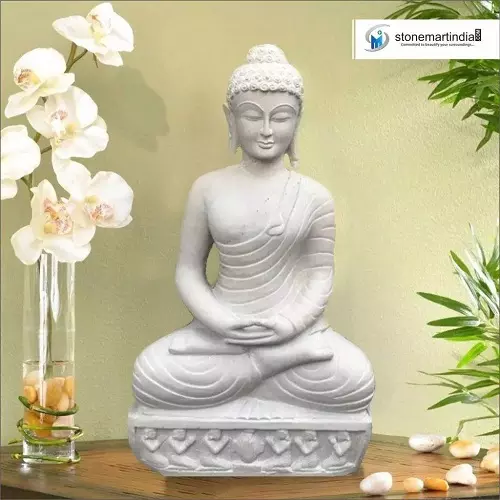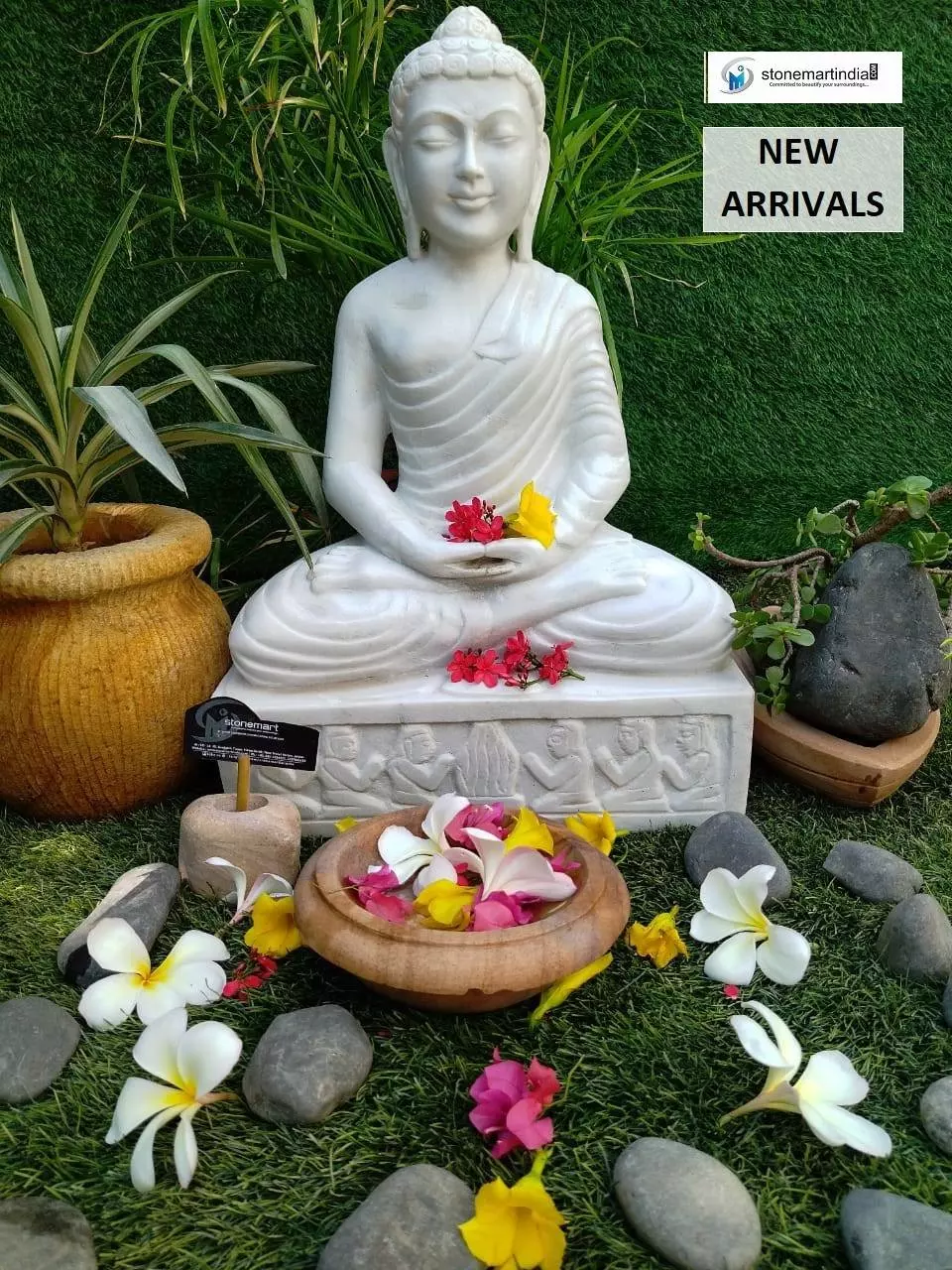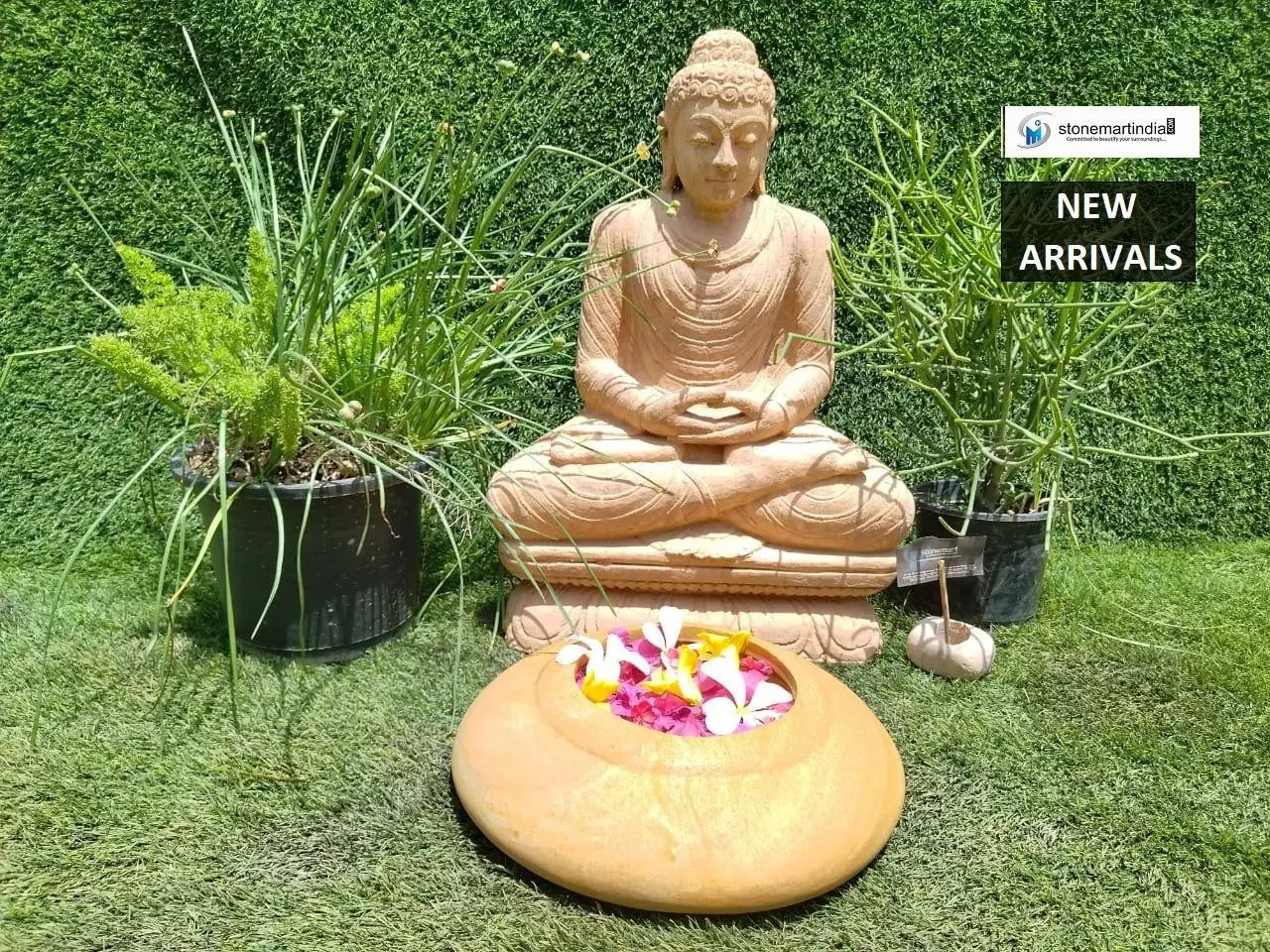
Alcohol and drug addiction is widely regarded as a serious bane to the society. The substance abuse is known for steadily destroying youth and gradually destroying a country in whole. It is essential to create necessary awareness amongst the youth to help curb this vicious cycle of addiction and help the victims of abuse through trusted rehabilitation centres.
The statues of the Buddha are widely regarded as a beacon of immense concentration, inspiration, and self-enlightenment. Here, we are going to throw some light on the type of Buddha statue that is widely recommended for installation in the rehabilitation centres. No one can deny the fact that, when it comes to the process of transformation amid the addiction recovery, most of the individuals try to discover or rediscover a unique type of spiritual connection to avail the necessary support during their decisive, positive journey.
Here, the stone carved Buddha statue that we recommend for purchase for the rehabilitation centres is an authentic dhyana mudra Buddha from a reliable online store. We are going to understand the importance of this statue and how we can help you in making the best choice in your online shopping efforts. Buying the right statue(s) with authentic quality at extremely fair prices is a prerogative that you ought to enjoy, and we are fully committed to help you in the same regard.
MUST READ: Dispel Fear of All Types by Bringing Home Buddha Statue in His Great Abhaya mudra Form
When we look at the redemption of the human beings from the prevailing challenges of the addiction, then we would find that Buddhism has a lot to offer. Buddhism is more than a religion. It can be practised as a way of life with components that can be helpful to those who are seeking a path to recovery. These components include the practice of meditation, means of relieving stress, mindfulness, etc.

Four Truths of Buddhism
Buddhism came into existence around 2,500 years by the great Siddhartha Gautama. After attaining enlightenment, this Indian prince came to be known as the Buddha. Here, the faith primarily revolves around a spiritual teacher, rather than a deity.
The Buddha preached four Noble Truths to his disciples:
- Life is a suffering
- The reason for suffering is desire
- There is indeed a way to end the suffering; It is accessible to everybody
- The key to successfully end the suffering is to get rid of the desire
These four truths can turn out to be meaningful to an individual recovering from alcohol or drug abuse. The concept that suffering is indeed universal reminds the concerned addicted person that his or her case is not unique. Besides him/ her, everyone has been going through similar sorts of experiences.
The second noble truth defines the reason behind the suffering. The key reason behind the suffering is desire, which also speaks of the concerned addiction. The cause for the struggle for an addict with the disorder is likely because of having the cravings for the drug of his or her choice.
The third noble truth surrounds the hope that clings to the fact that the suffering can be eventually ended. Which leads us to the fourth noble truth, i.e., the elimination of the desire. If the concerned addict can explore the ways to successfully deal with the cravings, it is feasible for him or her to maintain that sobriety on a daily life basis.
Buddhism and Mindfulness of Dhyana mudra in Addiction Recovery
The practice of becoming mindful depends on the fact that how fully you are experiencing the present moment. Here, the person practising the mudra is expected to use all the senses for the assessment of thoughts and emotions. When done effectively, the person shall never be dwelling in the past or lingering in the uncertainties of the future. It is imperative to utterly focus on the present, i.e., what is happening here and now. To achieve mindfulness, it is necessary for the person to slow down the senses and fully accept both pleasant and unpleasant experiences. That is where a dhyana mudra Buddha statue can help the addict to successfully navigate onto the course of recovery.

The Role of Meditation in Recovery
Meditation is widely practised as one of the core principles in the field of Buddhism. The principle is applied as a method for the recognition and dealing with all sorts of troublesome feelings. While meditating, the individual focuses on his or her breath and lets go of all their complex thoughts.
Indeed, it is essential to practice it on a regular basis, as random feelings tend to pop up amid the meditation session. When such feelings arise, they are to be welcomed without posing any judgment and then gently sent them on their way. Over a period, meditation can aid an addict to become more self-accepting. Here, the addict will learn not to judge him/ herself over the past events, which have ended and could no longer be controlled.
The Concept of Dhyana Buddha and Stress Relief
The practise of dhyana in Buddhism plays a decisive role to help the addicts to recover by relieving stress. One of the Noble Truths of the Buddha reveals the reality that to end the suffering one must remove the desire. Stress often generates out of the fear and no control over the future events. Buddhism teaches the individual to focus on his or her karma, i.e., practising meditation diligently. That is something that one can control and implement in a positive sense, and even the unknown events of the future shall occur in a positive direction as being the part of natural chain of events.
The posture of dhyana mudra Buddha inspires the addicts to immensely focus on regular meditation and mindfulness. The core idea of recovering from any sort of substance abuse is to control the urges of the senses and living the life “one day at a time.” The good rehab centres practising the Buddhist philosophy are successful because they know the carvings for alcohol or drugs are a challenging ordeal and require segregating the tasks into smaller intervals (like an hour, or a couple of minutes).
How can We Help?
We offer the finest range of dhyana mudra Buddha statue for sale online and served the requirements of thousands of rehabilitation centres, meditation/ yoga centres and homes till date. We deliver 100% authentic natural stone, hand carved Buddha statues that are free of impurities. Order at Buddha statue and get your own dhyana mudra Gautam Buddha statue delivered on priority at the most legit and fair price.
